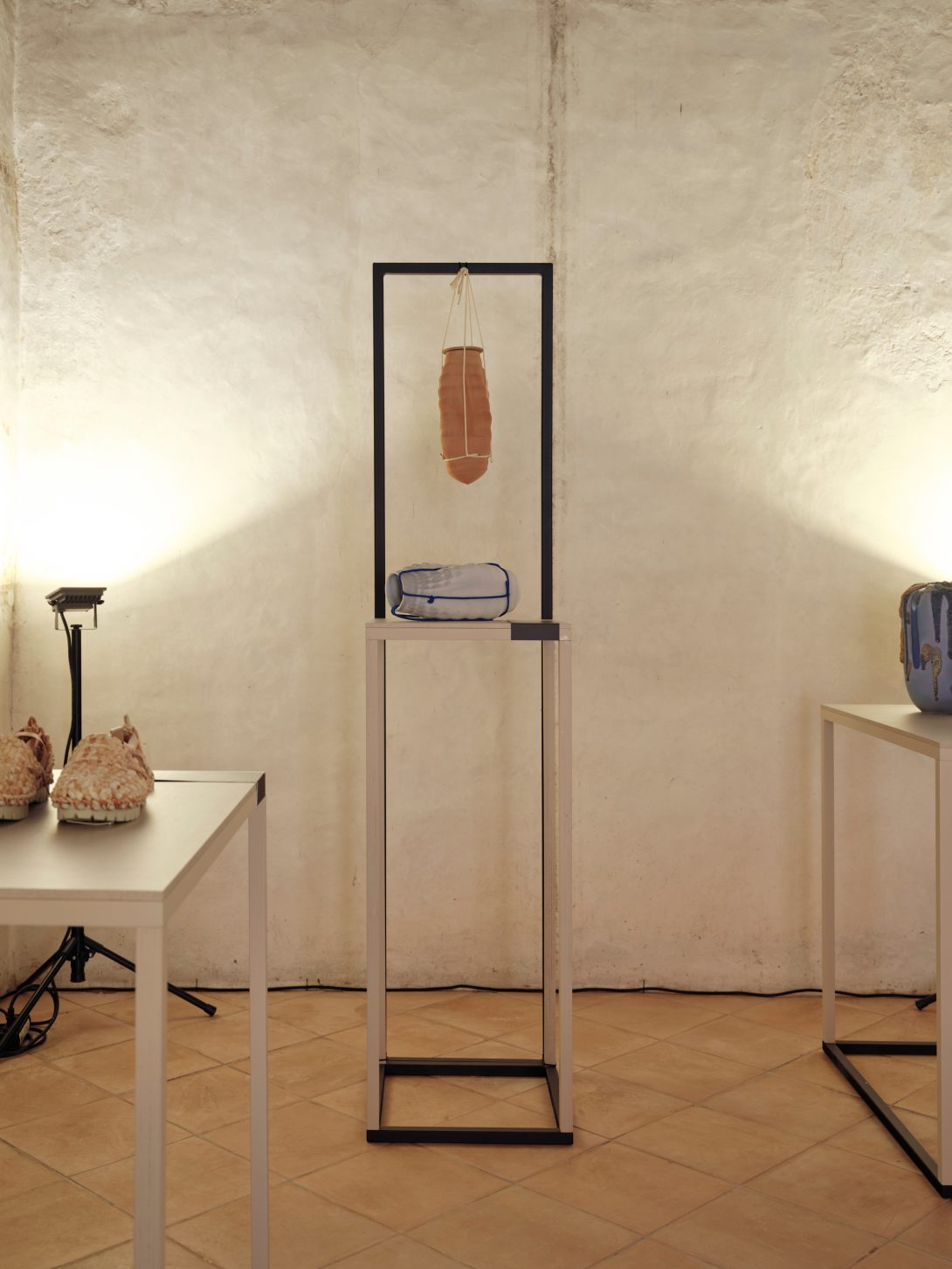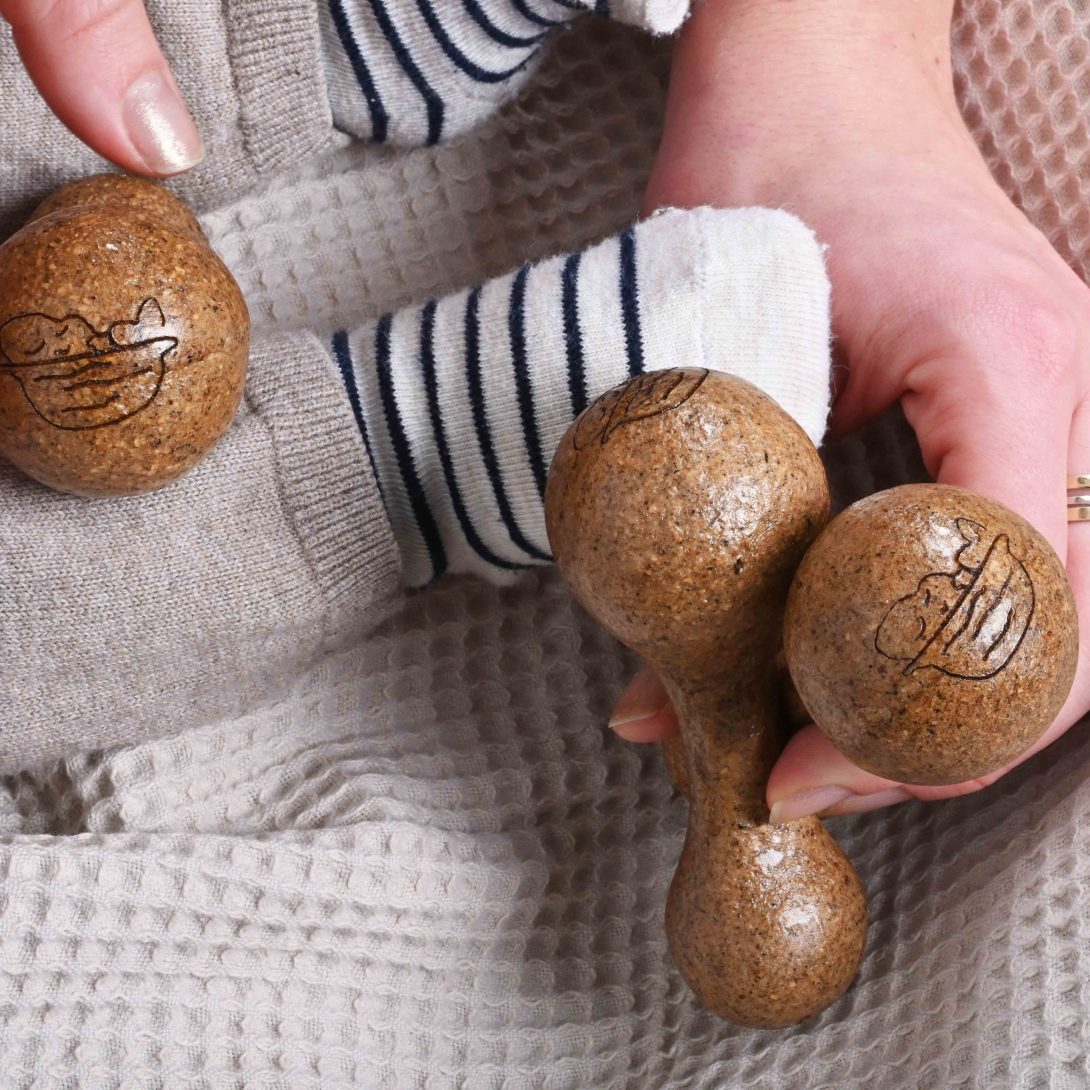The ten projects, chosen in the Centre for Creativity open call Connecting Contemporary Design, Craftmanship and Crafts, are currently on display in Posavje Museum Brežice until May 15 2024. They have previously been exhibited as a part of the Triennial of Craftmanship in The Museum of Modern and Contemporary Art Koroška from September 26 until November 19 2023 and at the exhibition Crafting Futures at Museum Of Architecture and Design from December 12 until March 10 2024.

Jury prizes were awarded at the Triennial of Craftsmanship and we are glad to say, that two of our chosen projects got awarded. Slurbee (by Rok Oblak and Luka Pleskovi?) received the award of the expert committee and Oreika (by Lara Baler and Boris Ou?ek) received special recognition of the expert committee.

?ebelino / Slurbee is a biocomposite drinking fountain for bees that is created using a mixture of natural clay and sawdust through 3D printing technology. The material is designed to allow water to seep through its surface so that bees can drink it even during the hottest and driest periods of summer. The fountain’s lid protects the water from getting dirty and allows beekeepers to easily refill it when necessary. The porous ceramic material created by mixing clay and sawdust enables bacterial filtration of the water while also making it accessible for bees to drink. The water level is clearly visible, making it easy for beekeepers to keep track of and refill as needed. Additionally, ?ebelino / Slurbee can be conveniently attached to a tree using a simple loop on a string. This innovative solution ensures that bees have a reliable source of water to sustain them throughout the summer, benefiting both the bees and their keepers.
Slurbee is made by Luka Pleskovi? and Rok Oblak. Luka Pleskovi? is a designer who graduated from the Academy of Fine Arts and Design. He is a co-founder of the Pjorkkala collective which has received awards such as Distributed design project excellence award, the Zagreb design week award in the social innovation category, the Perspektivni Zavoda Big award and the Cumulus green honorable mention. He exhibited projects at Dutch Design Week, Expo Dubai, Design Biennale (BIO27), Zagreb Design Week and Tbilisi International Triennial, among others.
Rok Oblak obtained his Masters of Arts degree in Applied Arts program at Emily Carr University in Vancouver, BC, Canada. He currently works in Ljubljana, where he established Salto Dionys, a micro craft enterprise for projects in ceramics, wood and various biocomposite materials. He occasionally runs DIT workshops and organizes pop-up shops for talented local craft designers.

Oreika is a fully biodegradable baby rattle which carries the sounding seeds that can be planted once the toy is outgrown, providing nutrients for the soil and enabling a new tree to grow out of it. Made out of new bio material Nuxit®, using local organic waste source – walnut shells, Oreika aims to stimulate a child’s early development with its different surface materialities, providing a circular alternative to plastic-based industrial toys.
The product is made by Lara Baler – M. Architect and M. Material Designer and Boris Ou?ek – a Mechatronics Engineer.
Oreika comes from the heritage of Slovenian autochthonous tree species and addresses problems of pollution and social exclusion, while offering an eco-friendly alternative to conventional industrial products and giving a local organic waste second life.

90% of baby products on the market are made of plastic, only 3,8% of that plastic is recycled and 80% of all baby products end up in a trash. They are introducing a collection of completely biodegradable children’s products made out of a newly developed Nuxit® biomaterial using local organic waste source – walnut shells. After your child outgrows the product, you can simply plant it and it will biodegrade completely in 8-9 months in contact with microorganisms in soil. A new life will grow out of clinging seeds in the rattle – as a memory on your child not being a baby any more.
The project combines circular economy principles, new technologies and tradition with a commitment to tackling the challenges of disempowerment, social exclusion, and environmental degradation. The primal material to produce Nuxit® biomaterial is collected by the socially excluded groups of scholars with special needs, while the end product is open to be personalized thorough the softwares used.
Stay tuned about the development of the projects:
Photos: Klemen Ilovar, Nika Hölcl Praper, personal archive



